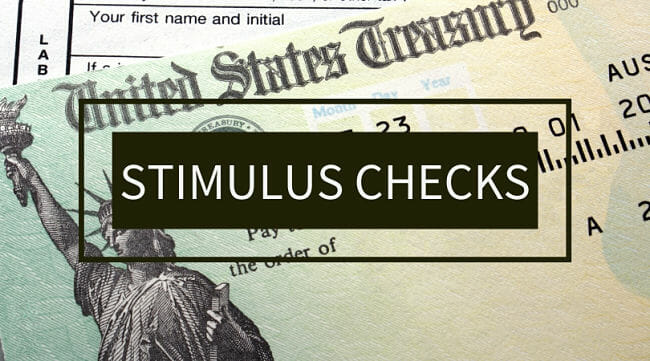Track Your Stimulus Check

Many of us have seen the financial impacts of COVID-19, and the CARES Act will provide some assistance as soon as this week for most. The Act is a single, one-time payment of $1,200 per adult and $500 per child under the age of 17, up to certain income levels. The IRS will determine what your payment will be by looking at your 2018 or 2019 tax return or Social Security data.

IRS Economic Impact Payments
- Tax filers who have supplied direct deposit information to the IRS have begun receiving payments this week
- If you do not file, you can enter your information here to assure receipt of benefits
- Those receiving Social Security benefits do not need to take any steps to receive their payment
- If you file, but do not provide banking information to the IRS, you will have an opportunity, beginning today according to Treasury Secretary Mnuchin, to enter this information on the IRS website. This will help you receive your funds in an expedited fashion.
- To track the status of your refund, click here.
FAQs
Below are a few of the top questions people are asking, if your question isn't answered below, the IRS has released a full comprehensive list of FAQs here.
Who is eligible for the economic impact payment?
Tax filers with adjusted gross income up to $75,000 for individuals and up to $150,000 for married couples filing joint returns will receive the full payment. For filers with income above those amounts, the payment amount is reduced by $5 for each $100 above the $75,000/$150,000 thresholds. Single filers with income exceeding $99,000 and $198,000 for joint filers with no children are not eligible. Social Security recipients and railroad retirees who are otherwise not required to file a tax return are also eligible and will not be required to file a return.
Eligible taxpayers who filed tax returns for either 2019 or 2018 will automatically receive an economic impact payment of up to $1,200 for individuals or $2,400 for married couples and up to $500 for each qualifying child.
I am not typically required to file a tax return. Can I still receive my payment?
Yes. The IRS will use the information on the Form SSA-1099 or Form RRB-1099 to generate Economic Impact Payments to recipients of benefits reflected in the Form SSA-1099 or Form RRB-1099 who are not required to file a tax return and did not file a return for 2018 or 2019. This includes senior citizens, Social Security recipients and railroad retirees who are not otherwise required to file a tax return.
Since the IRS would not have information regarding any dependents for these people, each person would receive $1,200 per person, without the additional amount for any dependents at this time.
I have a tax filing obligation but have not filed my tax return for 2018 or 2019. Can I still receive an economic impact payment?
Yes. The IRS urges anyone with a tax filing obligation who has not yet filed a tax return for 2018 or 2019 to file as soon as they can to receive an economic impact payment. Taxpayers should include direct deposit banking information on the return.
U.S. Representative John Larson's office has also addressed a number of your CARES Act questions. For more information from the Congressman, click here.





